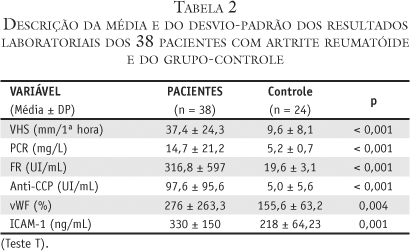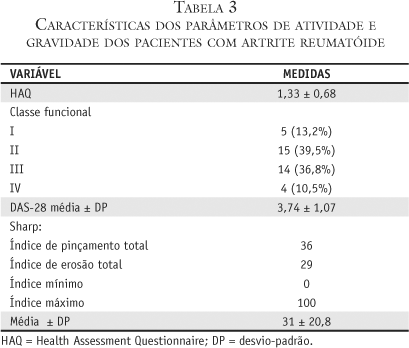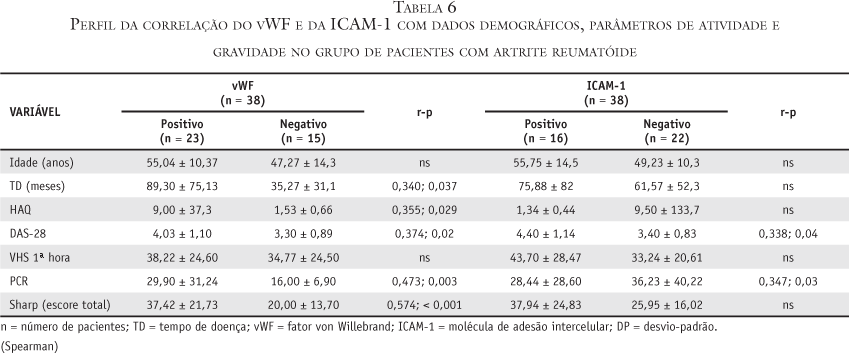Rheumatoid arthritis (RA) is an inflammatory chronic disease characterized by the production of antibodies and participation of the vascular endothelium in its pathogenesis. OBJECTIVES: to analyze the correlation of serum levels of the intercellular adhesion molecule 1 (ICAM-1), von Willebrand factor (vWF), Rheumatoid factor (RF), and anti-cyclic citrulinated peptide (anti-CCP) with clinical, laboratory, and radiological parameters of RA. METHODS: Serum levels of ICAM-1, vWF, RF, and anti-CCP were measured in 38 RA patients and 24 controls. Disease activity was measured by the DAS-28 score and functional capa-city was assessed using the HAQ score. The American College of Rheumatism criteria defined the functional class. Hand and fist X-rays were analyzed using the Sharp's score. Statistical analysis utilized the chi-square, Student's "t", Kolmogorov-Smirnov, and Mann-Whitney tests, as appropriate, as well as the Spearman's correlation coefficient. RESULTS: Age range was from 52 ± 12.5 and 49 ± 9.4 years-old in RA and controls, respectively. Disease duration range was 68 ± 66.6 months. Serum vWF levels had a positive significant correlation to disease evolution, whereas RF and anti-CCP correlated to the Sharp score. Serum vWF and ICAM-1 levels correlated to DAS-28, while only vWF correlated with HAQ and Sharp scores. CONCLUSION: This study shows that RF and anti-CCP autoantibody levels are correlated to disease prognosis rather than activity. Serum vWF levels are positively correlated to both activity and severity parameters of the disease.
rheumatoid arthritis; rheumatoid factor; ICAM-1; anti-CCP; von Willebrand factor






